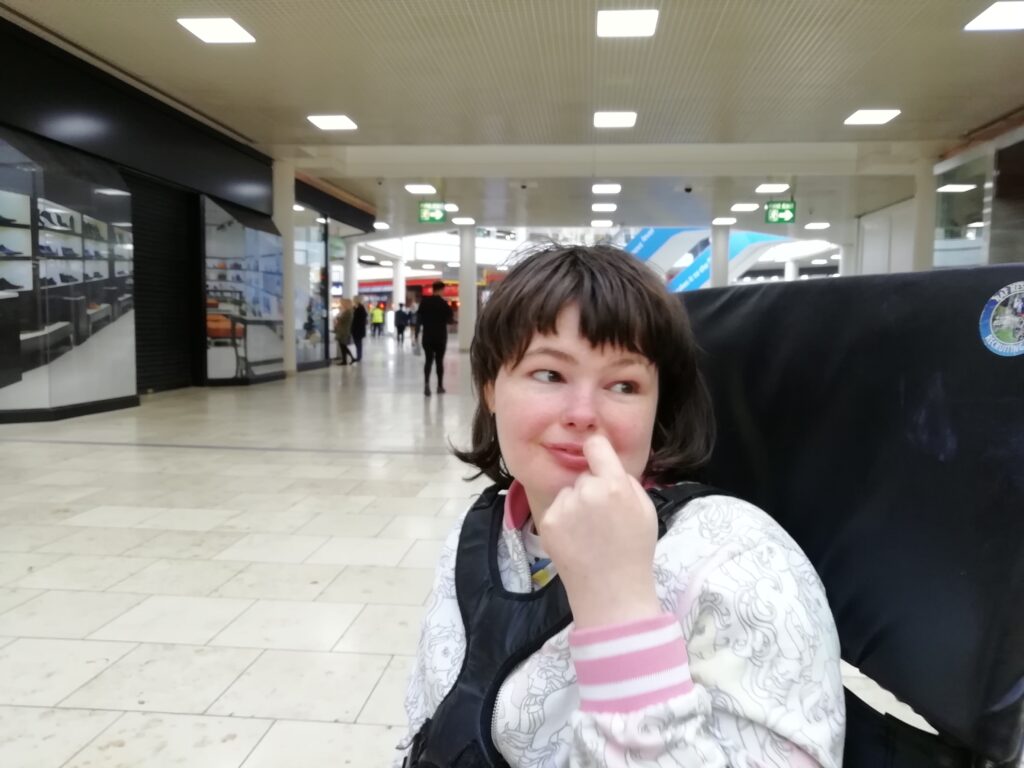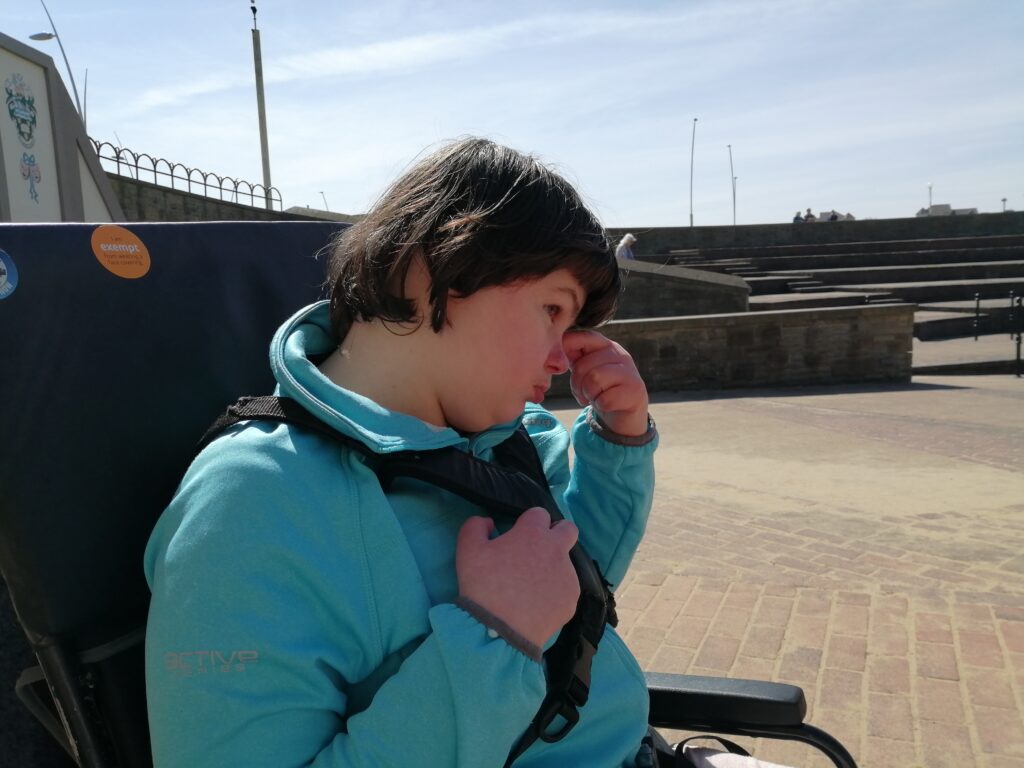Family carers of disabled people struggle to get a break, leaving many burnt out, new research reveals
- On average, family carers of disabled people spend over 40 hours a week providing care to their loved one, and more than a third (34 per cent) say they don’t receive any support to be able to take a break.
- Nearly two thirds (65 per cent) of carers say they are exhausted and/or burnt out, with 1 in 5 (19 per cent) unable to remember the last time they had a break.
- National disability charity Sense says pandemic and cost-of-living crisis has made situation worse and has now launched a campaign calling for greater investment in respite services to support family carers.

27 July 2023 – New research, published by the national disability charity Sense, has laid bare the pressure on carers looking after disabled family members, with nearly two thirds (65 per cent) describing themselves as exhausted and/or burnt out, with many delivering round-the-clock care without a break.
According to the charity, that supports people with complex disabilities, family carers spend an average of 42 hours a week providing care and support to their loved ones, completing tasks such as personal care, feeding, dressing, lifting and giving medication. Almost a third (33 per cent) of carers will spend more than 48 hours (two full days) providing care, and one in six (17 per cent) more than 72 hours (three full days).
Despite the long hours, many carers are unable to take a break from their caring responsibilities. More than a third (34 per cent) of carers said they don’t receive any support to be able to take a meaningful break, with 1 in 5 (19 per cent) unable to remember the last time they could take a break. Stretches of time between breaks are common, with two in five (44 per cent) carers having not had a break in at least the past two months. Only 6 per cent of people said they’d had a break in the past week.
Being able to take a break from caring responsibilities is essential, offering time to rest, reconnect with family and friends, or complete other tasks. The findings reveal that carers will most commonly use the time to catch up on household tasks, such as cleaning (56 per cent), catching up on sleep (46 per cent) and spending time with other members of the family or friends (46 per cent). More than a third (35 per cent) use their ‘break’ to do paid work.
Respite services are available for families, offering temporary care that lets a carer take a break from looking after their loved one. However, the support available varies widely across the country, and families complain that some services paused during the pandemic have not resumed.
Carers cites affordability (33 per cent) as the biggest barrier preventing them from accessing respite services. This is followed by a lack of clear information available on what services and support are available in the family’s local area (29 per cent) and long waiting lists to access support (26 per cent). 22 per cent of carers say that services and support available don’t meet the needs of the person they care for, while other factors include restrictive eligibility criteria and transport costs.
Sense believes the needs of families are being neglected and is calling on national government to commit to long-term funding for specialist respite services, and for Local Authorities to improve its provision of information available for families so they know what is available to them.
Richard Kramer, Chief Executive of Sense, said:
“Caring for someone with complex disabilities is often demanding, non-stop work, and takes its toll physically and mentally.
Yet sadly, family carers across the country are missing out on a being able to take a meaningful break from these responsibilities – denied the opportunity to rest and recuperate, reconnect with family and friends, or take part in other activities.
The pandemic and now the cost-of-living crisis has made the situation worse, with carers taking on even greater caring responsibilities and receiving less support, with their health and wellbeing suffering as a result. Many are simply burn-out.
We need to show that we value these incredible individuals in our communities. Local and national government must commit long-term resource and funding to support families.”
Case study: “I care for my disabled daughter 24/7 – I even missed my other daughter’s wedding because there was no respite available”

John Glover, 56, lives in Jarrow, South Tyneside, with his daughter, Vicki (pictured), 34, and his wife.
Vicki has Dravet syndrome, a rare and severe form of epilepsy. Vicki is non-verbal, has a learning disability and uses a wheelchair.
Caring for Vicki is physically demanding and John describes her as having no sense of danger, so she must be monitored at all times. It takes two people to supervise her 24/7, and overnight John and his wife take shifts to sleep so one of them is always awake to look after their daughter.
John Glover said: “You can’t go to the toilet, you can’t get a drink, you have to be in the room with her.”
Until 2020, the family had a full week of respite per year and 52 nights through the year which Vicki’s parents could have away from caring for her. But since the pandemic, the respite care has halted, and this has had a dramatic impact on the family.
John continued: “When we had respite, we’d go away on holiday and recharge. Without this support, we’ve had no social life for the past four years. We couldn’t even attend our other daughter’s wedding because there was no respite option.
“We need something to give us that free time, a bit of rest, a lie-in. We can go out for a meal together, go to the cinema, paint the house. It would mean we can catch up on all the jobs we can’t get done during the average day.”
Sense has a launched a new campaign calling for greater respite support for families. For more information visit www.Sense.org.uk/GiveCarersABreak
ENDS
Notes to editors:
*The research was conducted by Censuswide with a sample of 1,000 family carers of a disabled person aged 18+. The survey fieldwork took place between 15.06.2023 – 20.06.2023. Censuswide abide by and employ members of the Market Research Society which is based on the ESOMAR principles and are members of The British Polling Council.
Contact Sense’s media team
Email: [email protected]
Phone number: 0203 833 0611
